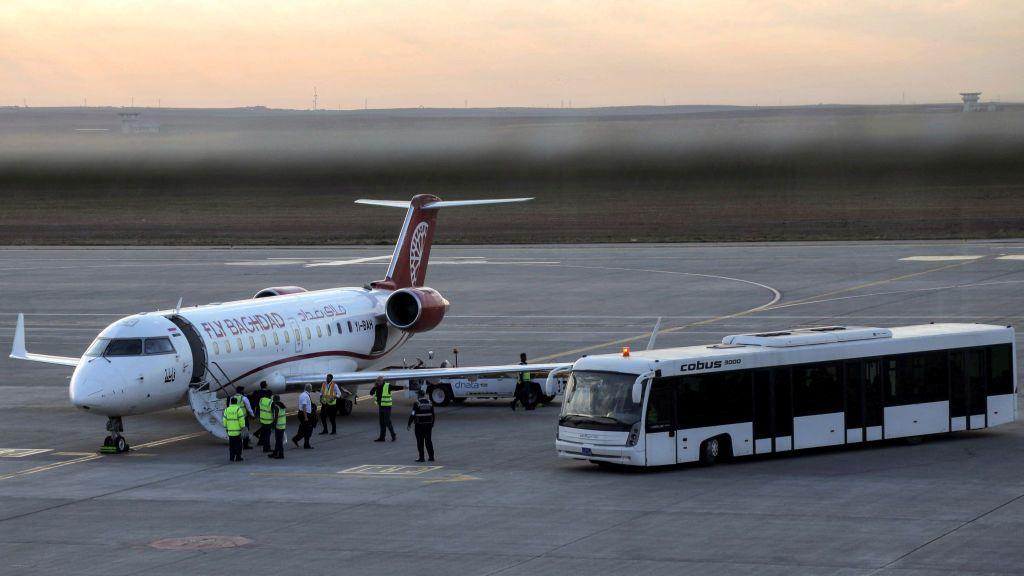U.S. Sanctions Iraqi Airline For Supporting Iranian-Backed Militias

A Fly Baghdad Bombardier CRJ-200ER on the tarmac at Erbil International Airport, in the capital of the northern Iraqi Kurdish autonomous region Arbil, on Dec. 24, 2019.
Credit: Safin HAMID/AFP via Getty Images
The U.S. Department of the Treasury on Jan. 22 announced sanctions against the Iraqi airline Fly Baghdad for providing materiel support to Iranian-backed militias, days after a U.S.-occupied base in western Iraq came under attack from dozens of missiles linked to a militia. The sanctions from the...
Subscription Required
U.S. Sanctions Iraqi Airline For Supporting Iranian-Backed Militias is published in Aerospace Daily & Defense Report, an Aviation Week Intelligence Network (AWIN) Market Briefing and is included with your AWIN membership.
Already a member of AWIN or subscribe to Aerospace Daily & Defense Report through your company? Login with your existing email and password.
Not a member? Learn how you can access the market intelligence and data you need to stay abreast of what's happening in the aerospace and defense community.





